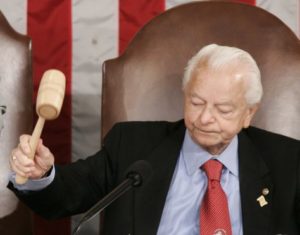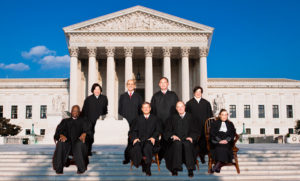That darn Markwayne Mullin. He said he’d serve just three terms in the U.S. House of Representatives and then bow out.
So, what does the Oklahoma Republican do? He reneges on his pledge. He’s going to run for a fourth term. Term limits? Who needs ’em, right Rep. Mullin?
Actually, since I don’t believe in mandated term limits, I’m not all that worked up about Mullin’s decision to try once again to be elected to his House seat.
There’s a certain irony, though, attached to this announcement.
One is that Mullin made a foolish pledge in the first place. He says he was so frustrated serving in Congress during the Barack Obama administration that he now wants to serve during the time Donald Trump is president. He thinks he can get more done while Trump is president.
The foolishness of the pledge reminds me of how many of the 1994 Contract With America class of congressmen and women promised to serve a limited number of terms. Some of them kept that pledge, others took it back. I think of former Rep. George Nethercutt of Washington state, who defeated House Speaker Tom Foley in arguably the biggest upset of the 1994 election. Nethercutt vowed to serve three terms and then he pulled it back. He eventually gave up his House seat to run unsuccessfully for the U.S. Senate from Washington; his broken promise became an issue and he lost that campaign.
U.S. Rep. Mac Thornberry, from right here in the Texas Panhandle, also was elected that year. He has voted in favor of proposed constitutional amendments limiting lawmakers’ terms. He just never made the pledge for himself. He’s still in office — 22 years later!
Back to Markwayne Mullin. This clown also declared during a town hall meeting earlier this year that the public doesn’t pay his salary. Huh? Yep. He said he pays his own way to serve in Congress.
Umm. No, young man. Not true! The public pays your salary, your office staff’s salary, and all the perks associated with your office. Why, even I have a stake in your salary, even though I am not one of your constituents.
So, my hunch is that the voters of his Oklahoma congressional district just might invoke their version of term limits — by kicking his rear end out of office next year.
“We understand that people are going to be upset. And we get that. We understand it,” Mullin said. “I’m not hiding from that. Because we did say we were going to serve six years.”
There might be a lesson here. Which is that certain campaign promises are not to be treated like something you can just toss out when you get a change of heart.



